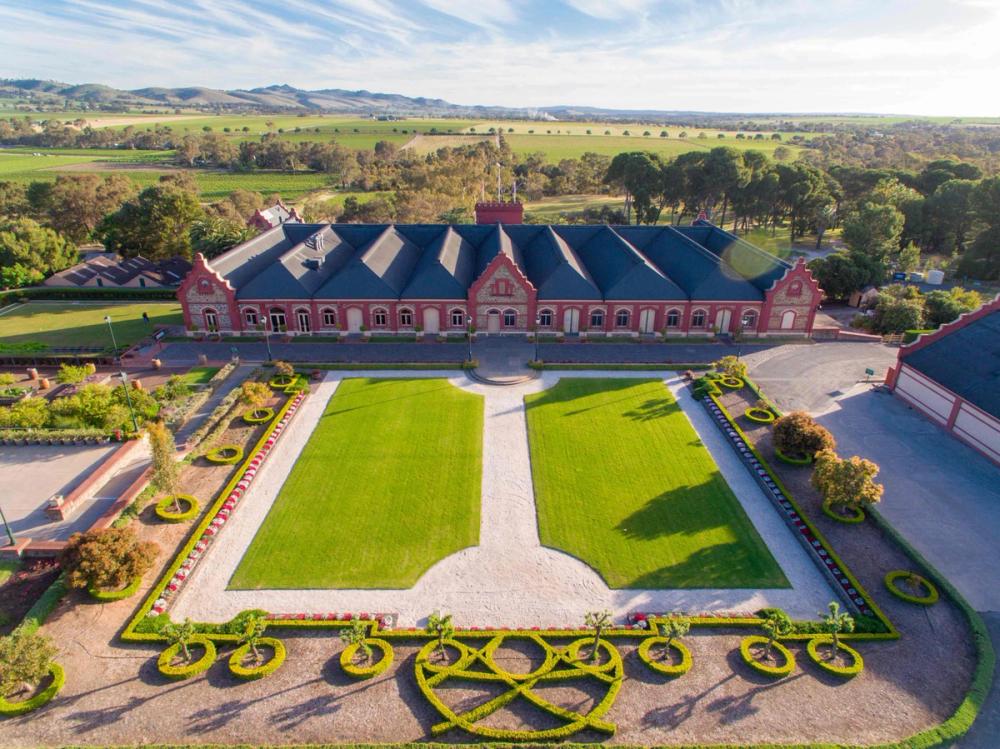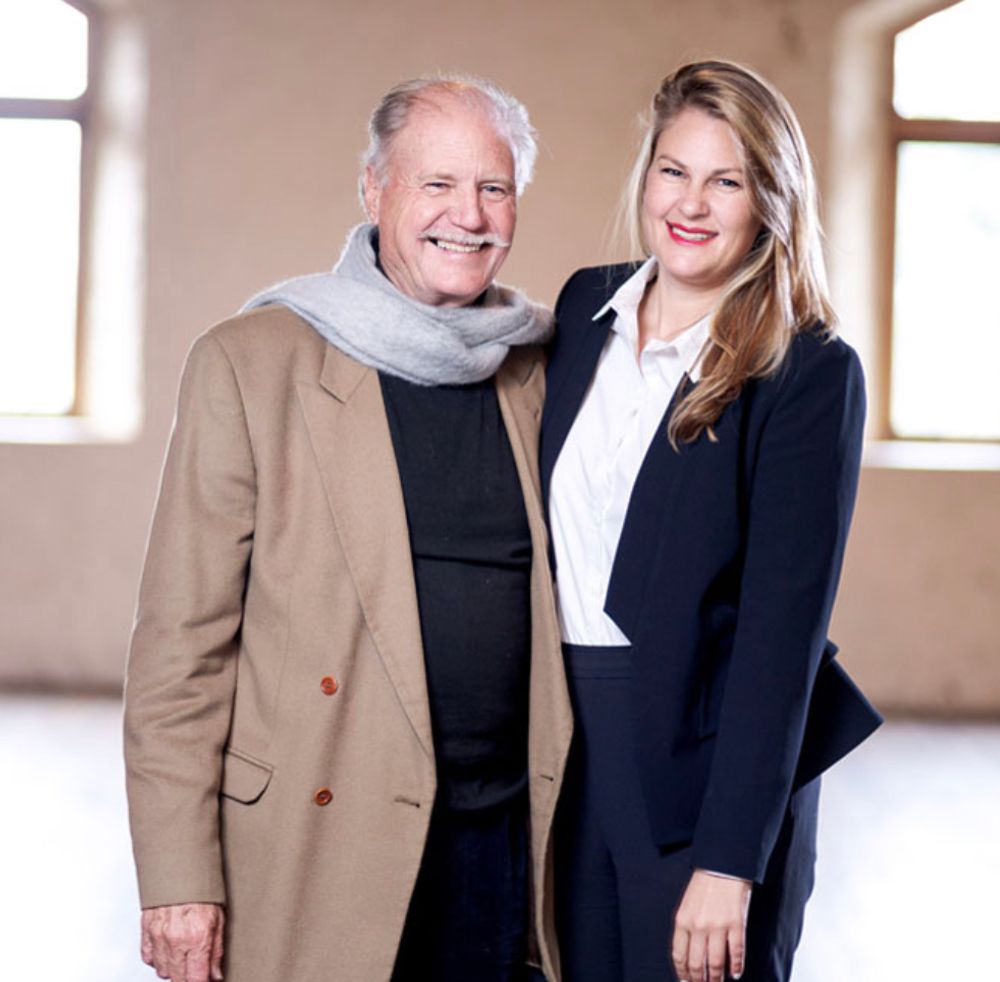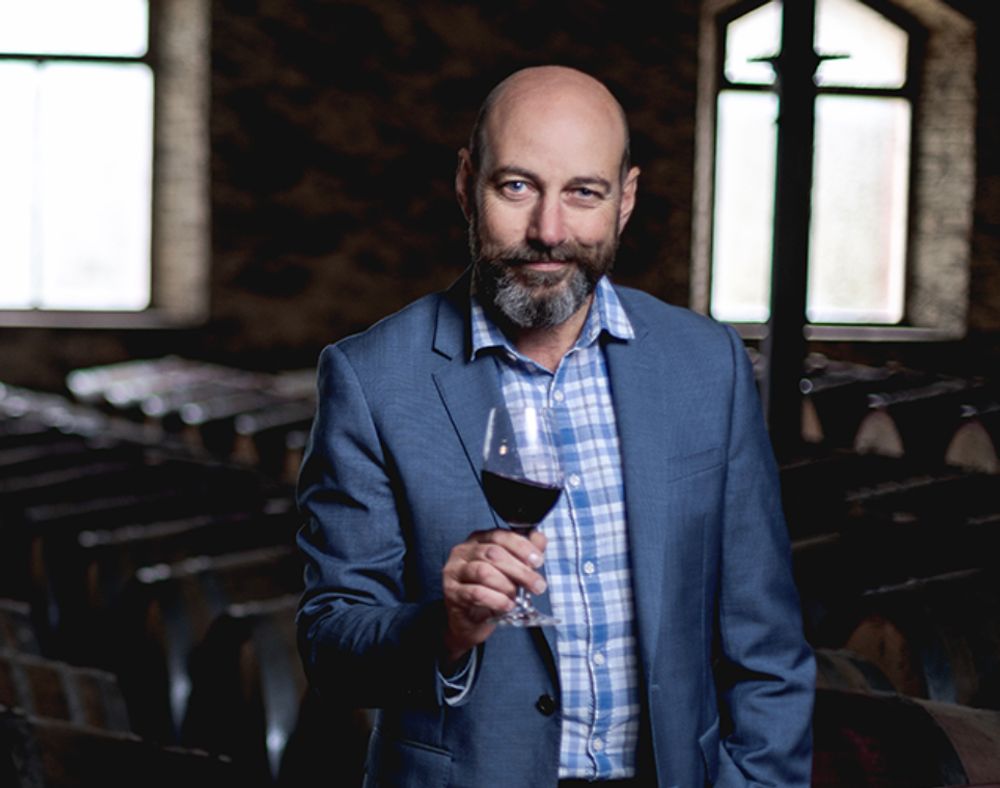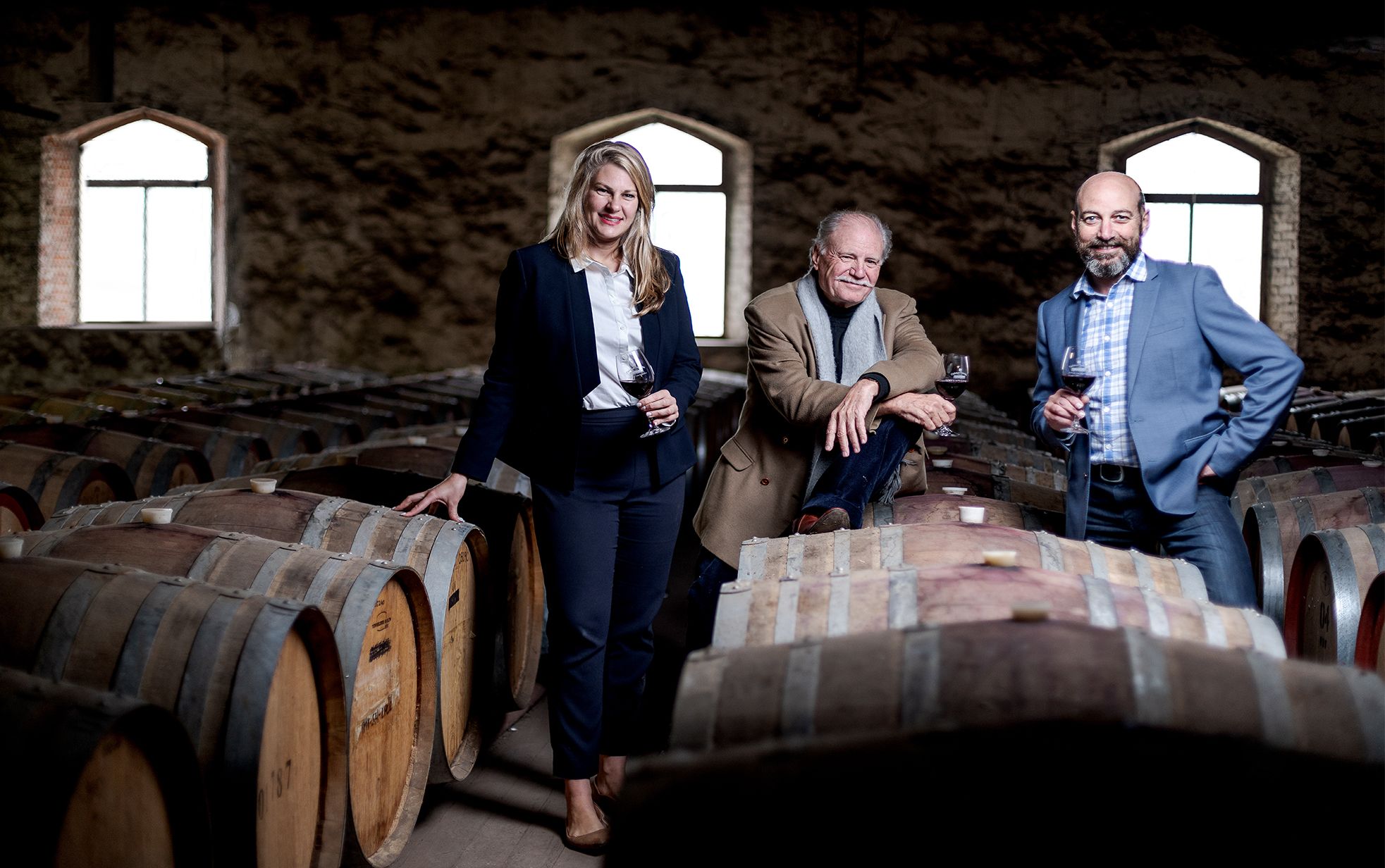For those that don't know the winery can you please give us some background to the company and the wines you make?
Château Tanunda is one of the most beautiful and historically significant wineries in Australia with a fine winemaking legacy over 135 years old. The Château is an icon of the Barossa, Australia's most famous wine region and one of the top fine wine regions of the world. Today, my family, with me as the second generation, take on the custodianship and founding vision, to craft some of Australia's most highly awarded and recognised wines, exemplifying what makes the Barossa so special. Plush, vibrant and bold flavours in Shiraz and Cabernet Sauvignon.
You are one of just a small number of Australian producers allowed to use the Château name in the EU - why is that?

Château Tanunda has been making and exporting wines for over 135 years
Château is a protected traditional term for French wines under EU law. This classification came alongside other protections like usage of the word ‘Champagne’. However, because of Château Tanunda’s unique and longstanding history, using the term ‘Château’ since its inception in 1890 and exporting to Europe since it was established, we secured the name and usage of Château Tanunda in the EU due to grandfather rights. In fact, we won #1 best Claret at the London Empire Exhibition in 1901, and 100 years later we won a similar achievement at the IWSC in London with World’s Best Shiraz, and Best Single Vineyard red wine for our Everest Shiraz and Grenache respectively.
What changes and developments have you made to your wines in recent years to cope with demands from the market?
Wine drinkers’ preferences are always changing, sometimes more rapidly than others. We have been at the forefront of the now well-established movement to more fruit forward, fresh and crisp styles.
This is a worldwide phenomenon, with consumers looking for a little less alcohol and a brightness of fruit expression in wine. At Château Tanunda we have been embracing this change making our Barossa wines from fruit that is naturally ripened but not over-ripe. This has seen changes in our viticulture and harvesting, as well as in the winery to evolve wines that exhibit their primary fruit character, with a balance that leaves the palate refreshed and ready for more.
There is also a huge demand from the market for wine businesses to work actively towards sustainability. While an eye to the future has been at the core of Château Tanunda as a nearly 135-year-old business, we have also actively sought out and received formal accreditation through recognised bodies such as Freshcare and Sustainable Winegrowing Australia.
What impacts are you seeing from climate change and what steps are you taking to address them?

Château Tanunda has been in the Gerber family's hands still 1998 - here with John Gerber and his daughter and managing director, Michelle Geber
Increasingly, challenging climatic conditions are faced by winemakers the world over. In Australia, we have developed the capacity to withstand long term drought or heat waves with water management. Additionally, we are continually looking at improved methods of reducing soil temperatures by increasing moisture holding capacity and maintaining cooling and shady vine canopy to protect the fruit.
The development of an active and healthy soil biome, combined with the increasing Soil Carbon are having profound effects on how our vines manage periods of stress. We are at the leading edge of this work in vineyards and looking to do more at every stage.
What percentage of your wines do you sell in Australia and for export?
Exports have always been an important part of our business and we are one of the top five exporters of Barossa wine globally. It's approximately 50/50.
Our Grand Barossa Shiraz is our most famous wine globally sold in over 30 countries worldwide and has market leading positions in select European markets such as Switzerland.
The winery has been traditionally very strong in key markets like Continental Europe, UK and is now further expanding into the Asia Pacific region and the Americas.
What styles of wine perform best in exports, and why do you think that is?
Barossa is most famous for Shiraz, but also for popular varieties like Cabernet, Merlot and Chardonnay. These happen to be amongst the most popular varieties in the UK. Our wines have delicious flavours of our Mediterranean style climate. The style is vibrant, plush, silky but also sophisticated. We are passionate about crafting delicious fruit flavours with acidity and balance.
Our winemaking uses a minimalistic approach to allow the quality of the fruit to express itself and for our premium wines we are only using French oak which brings more subtle and complementary nuances to support the wines, rather than overpower. This style makes them incredibly food versatile.
What outstanding opportunities do you see for your wines/ the estate in terms of production and styles of wine you are making?

The winery has vines that are well over 100 years old
At Château Tanunda we are focusing on premium and luxury Barossa wines, from select single vineyard sites and Old Vines wines. These 50, 100 and 150-year-old vineyards are rare to find and stand out in the international offering.
Our Old Vine Expression range and The Everest are small batch and limited-edition wines; they are sophisticated, with incredible fruit flavour that only the Barossa can achieve from its unique climate and from the low yielding fruit of Old Vines.
We embrace a new and modern winemaking style resulting in elegant and vibrant wines that attract collectors and enthusiasts all over the world. Both our chief winemaker, Neville Rowe, and senior winemaker, Jeremy Ottawa, have been recognised as one of the “Top 100 Master Winemakers” by Drinks Business Magazine UK. These two winemakers are dedicated to producing high-quality wines that capture the essence of the Barossa.

Neville Rowe is tasked with making sure Château Tanunda's wines are adapted and suitable for all the export markets it wants to be in
What are the biggest challenges?
The UK government graduated alcohol taxes that will have an array of effects on the wines that are offered to the market.
This presents a challenge for winemakers who are simultaneously working with the effects of increasing average temperatures in already warm climate wine growing countries like Australia. However, it is a challenge we all accept.
Old school, high alcohol full bodied reds will be an increasingly rare sight. There will be a move towards medium-full bodied expressions of the same generously flavoured wines people expect from warmer countries like Australia and Spain.
And that is an exciting evolution. In vineyard management, it demands greater emphasis on attaining flavour ripeness at lower Baumé (sugar) levels, whether through vineyard practices or variety selection. In the winery, the technology is already mature which allows us to make tweaks to alcohol levels that have minimal effect on the overall structures of the wines.
While it is inconvenient for some, we feel Australia and Château Tanunda are well equipped to react and possibly come out making wines even better than before.
* If you want to find out more about Château Tanunda then go to its website here.






























